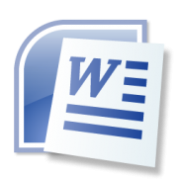The Chronicle's Billie Hara writes about an interesting piece of software called Snowflake that walks writers through a process called the snowflake method for developing an increasingly complex narrative:
The writing premise is simple: start writing with a core idea or thesis. As you add information, detail, and layers, the fractal changes, becoming more and more intricate. For example, using the image below, you might begin with a core idea (the triangle), then, after some simple development, you’d have the next image. Add even more content and detail, and then you have the third fractal, and so on.
The Snowflake software takes writers through a series of steps to generate this core idea, flesh it out with more details, define characters, etc, with a series of forms. Then it spits out text that can be copied into a standard word processor.
 I've seen a lot of specialty writing programs like this, often focused on helping writers organize their work or removing distractions, and a lot of them are pretty slick. I'm a big fan of Scrivener, which I used to help manage my master's thesis. The only problem is that if you ever want to publish your work, you'll eventually have to convert it to Word format. Once you start working with an editor it's a pain to export/re-import your work into one of these specialty programs. Even using programs like Apple's Pages or the OpenOffice suite that match Word feature-for-feature can be a hassle because they save to their own formats, which can be confusing to juggle with the marked up .doc you got back from your editor. And don't even get me started on tracking changes. Blech.
I've seen a lot of specialty writing programs like this, often focused on helping writers organize their work or removing distractions, and a lot of them are pretty slick. I'm a big fan of Scrivener, which I used to help manage my master's thesis. The only problem is that if you ever want to publish your work, you'll eventually have to convert it to Word format. Once you start working with an editor it's a pain to export/re-import your work into one of these specialty programs. Even using programs like Apple's Pages or the OpenOffice suite that match Word feature-for-feature can be a hassle because they save to their own formats, which can be confusing to juggle with the marked up .doc you got back from your editor. And don't even get me started on tracking changes. Blech.
I'm not sure what's more frustrating: the fact that editors can't be more flexible about working with different file formats, or that the software companies don't make it easier to do so (and no, .doc is not a common format). After all, it's just text. Maybe this goes away when we all write on the web, but until then tools like Snowflake or Scrivener will work best for brainstorming and turning out a first draft or performing reconstructive surgery on some ailing prose, not for producing a finished copy.


